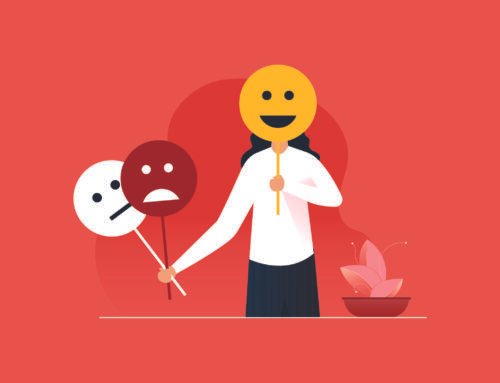MENTAL HEALTH AND ADDICTION
By Aditi Kumari, Clinical Psychologist
Substance use disorders (SUDs) and mental illness frequently coexist.
“Substance use disorder patients are more likely to develop depressive disorders, bipolar disorder, anxiety disorder, PTSD, eating disorder, schizophrenia, and ADHD,” Lagoy says.
According to the National Alliance on Mental Illness, the combination of substance abuse and mental illness is known as dual diagnosis or co-occurring disorders (NAMI). According to the National Survey on Drug Use and Health, nearly 9.5 million American adults suffered from both conditions in 2019.
Substance use disorder is a mental illness.
According to the National Institute of Mental Health (NIMH), substance use disorder (SUD) is a mental illness that affects your brain and behaviour. Those suffering from SUD frequently struggle to control their urges to use substances such as illicit drugs, alcohol, or medication, despite knowing that these substances are harmful.
Risk factors for both mental disorders and SUDs can be common.
According to the NIMH, because both SUDs and mental disorders can run in families, certain genes may be a risk factor for both conditions. Genetic changes caused by environmental factors such as stress and trauma are passed down through generations and may result in the development of SUDs or mental disorders. Mental health conditions can lead to substance misuse.
According to the National Institute of Mental Health (NIMH), people suffering from mental illnesses such as depression, anxiety, or post-traumatic stress disorder (PTSD) may begin using drugs or alcohol to self-medicate (National Institute of Mental Health). This may provide temporary relief from mental illness symptoms.
Adolescent substance use may increase vulnerability to the later development of a SUD.
According to the National Institute on Drug Abuse, the brain circuits that control executive functions such as decision-making and impulse control mature at a later developmental stage, increasing adolescent vulnerability to drug use and the development of a SUD.
They are as follows:
- Genetic proclivity
- Psychosocial experiences
- Environmental factors
- The connection between substance abuse and mental illness
- A co-occurring disorder or dual diagnosis occurs when you have both a substance abuse problem and a mental health issue such as depression, bipolar disorder, or anxiety. It’s never easy to deal with substance abuse, alcoholism, or drug addiction, and it’s even more difficult when you’re also dealing with mental health issues.

IMPACT OF ADDICTION ON MENTAL HEALTH
Any substance, whether prescribed or not, has an effect on the central nervous system(CNS) of the body. Substances have an impact on people’s physical and mental health.
Depressants (alcohol, solvents, sleeping tablets, benzodiazepines, e.g. diazepam):
Depress the central nervous system. Anxiety and tension relief. A sense of well-being and calm. Drowsiness and loss of concentration are possible side effects.
Stimulants (Cocaine, Ecstacy, amphetamine, steroids, khat, GHB):
Stimulate the central nervous system. I’m feeling more energised and awake. Increased energy and a better mood. Enhanced endurance. Anxiety, nervousness, and a lack of sleep are all symptoms.
Altering perceptual function (Cannabis, LSD, Ketamine):
People’s perceptions must be altered. Increased senses and mood. Visual distortions and hallucinations are common. Feelings of euphoria and floating.
Reduce pain (Heroine, codeine, methadone):
Reduce your pain sensitivity. Warmth and contentment are felt. Sleep and sedation. Can conceal signs of mental distress.
Addiction’s Psychological Effects
Dopamine isn’t the only neurotransmitter that influences your mood and mental state; serotonin, norepinephrine, and other neurotransmitters also play a role. Mental disorders, like addiction, are rarely the result of a single trigger or cause.
- Anxiety (Nervousness)
Anxiety is best described as a fight-or-flight response disorder in which a person perceives danger that does not exist. It is characterised by the following physical and mental symptoms:
- Rapid heartbeat
- Excessive worrying
- Sweating
- A sense of impending doom
- Mood swings
- Restlessness and agitation
- Tension
- Insomnia
Anxiety shares many similarities with the effects of stimulants such as cocaine and methamphetamine. Using central nervous system depressants, on the other hand, can increase a person’s risk of developing anxiety. Although they relax a person’s nerves while intoxicated, they exacerbate anxiety after the effects wear off.
Furthermore, many addicts are anxious about concealing their habits from others. It’s difficult to tell whether anxious people are more likely to abuse substances or whether illicit drugs and alcohol cause anxiety in many cases.
- Guilt and Shame
Addiction carries a stigma in society, and those who struggle with the condition feel a great deal of guilt and shame. Frequently, this is simply adding fuel to an already raging fire.
People with substance use disorders have a habit of evaluating themselves negatively on a regular basis, which stems from childhood experiences. Constant negative self-talk exacerbates feelings of shame and guilt.
When you constantly feel like you’ve done something wrong, it’s tempting to try to mask your feelings with drugs and alcohol. These negative emotions contribute to the negative feedback loop that drives people into addiction.
- A Loop of Negative Feedback
From the outside, someone suffering from an addiction appears to be making poor decisions and ignoring logic. However, the truth is far more complicated and nuanced — so much so that it can be extremely difficult for people to overcome a substance use disorder without inpatient or outpatient addiction treatment. This is due in part to a negative feedback loop that occurs in the mind.
When someone is addicted to drugs or alcohol, they find a sense of comfort that they cannot find elsewhere. As they sober up and face the consequences of their actions, this feeling is eventually replaced by guilt and shame. However, the weight of these emotions forces them to seek solace in substances.
4. Depression
Depression is another mental illness that is strongly linked to addiction. It’s unclear whether the depression or substance abuse problem comes first, as it is with anxiety, but there is a clear link. Depression is characterised by the following symptoms:
• Hopelessness
• Lack of motivation
• Dysregulated emotion
• Disinterest
• Sleep disturbances
• Irritability
• Gain or loss of weight
• Suicidal thoughts
Some withdrawal symptoms overlap with signs of depression, making it difficult to diagnose coexisting addiction before the SUD is treated. To overcome depression, the majority of people require ongoing therapy.
5. Loss of Interest
Losing interest in previously enjoyed activities is a key symptom of both addiction and depression, but overcoming the former makes controlling the latter much easier. It’s such a damaging symptom because it’s so demotivating to feel like there’s no joy in the world. Everyone has passions and interests, but finding them can be difficult for someone with these conditions.
Treatment programmes assist you in determining the causes of your unhealthy substance use so that you can develop new coping mechanisms and address any underlying issues in therapy.
Short-term mental effects
The following are some examples of common drugs and their short-term mental effects:
- Alcohol:
- feelings of euphoria
- anxiety reduction
- improved social interactions
- irritability and anxiety following withdrawal
- Cannabis:
- Improved sensory perception
- feelings of euphoria and relaxation during withdrawal
- anxiety
- irritability
- Benzodiazepines:
- Drowsiness
- difficulty concentrating
- dizziness
- memory problems
- feelings of euphoria
- restlessness after withdrawal
- Prescription opioids:
- pain relief
- drowsiness
- euphoria
- Methamphetamine:
- increased wakefulness
- anxiety during withdrawal

Long-term mental effects
The following are some examples of common drugs and mental effects associated with long-term SUD:
- Alcohol:
-
- depression
- anxiety
- learning and memory difficulties
- social issues
- Prescription opioids:
- higher risk of overdose
- Methamphetamines:
- anxiety
- confusion
- insomnia
- mood issues
- violent behaviour
- paranoia
- hallucinations
- delusions
- Heroin:
- Tobacco and nicotine:
- In adolescence, they can have an impact on the development of brain circuits that control attention and learning.
- Irritability, attention and sleep issues, and depression as a result of withdrawal
- Cannabis:
- mental health issues
- irritability, difficulty sleeping and anxiety during withdrawals
CONNECTION BETWEEN MENTAL HEALTH & SUBSTANCE USE
People use substances because they have an effect on how they feel and think. Substances’ impact will be determined by the individual’s mental and physical state, as well as the nature and severity of any mental distress. It will also depend on the type, quantity, and combination of substances used, including prescribed medication, as well as the amount the individual is accustomed to taking and the route of administration. There are several connections between the two issues:
- Substance abuse may result from mental distress as a means of coping with symptoms or other problems.
- Substance abuse can cause or exacerbate mental distress.
- Substance abuse may exacerbate pre-existing mental distress.
- Substance abuse can cause symptoms similar to those associated with psychiatric diagnoses.
- Substances can be used to self-medicate psychiatric medication side effects.
- Substances can be used to cause self-harm (which is also a way of coping).






